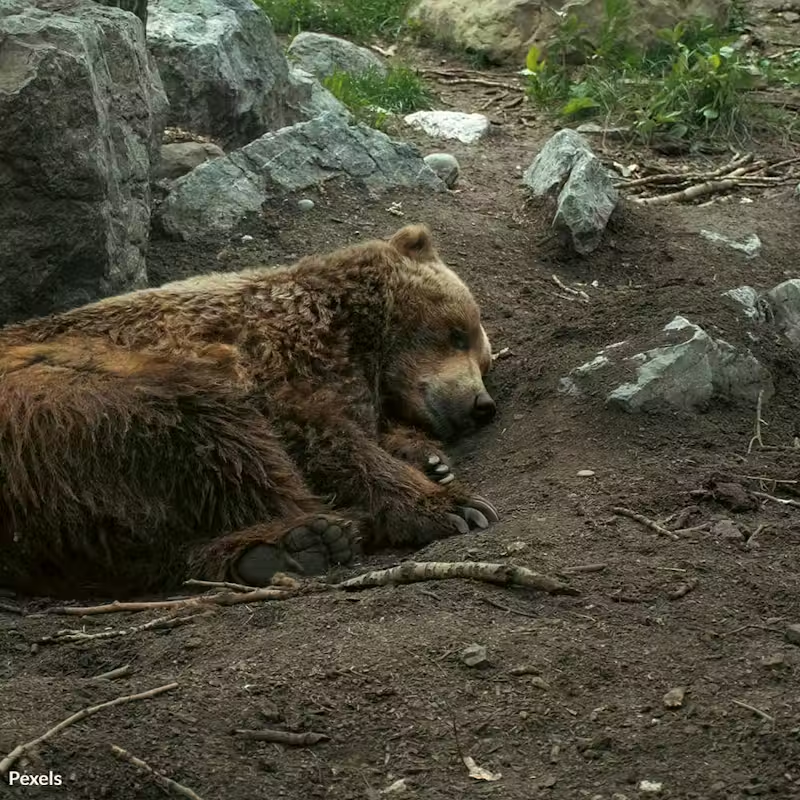End the Cruel Hunt for Sleeping Bears and Cubs in Alaska
10,948 signatures toward our 30,000 Goal
Sponsor: The Animal Rescue Site
Alaska's hibernating bears and their cubs face cruel, inhumane hunting practices—help protect these vulnerable animals.

In Alaska, the legal loophole allowing hunters to target hibernating bears and nursing mothers in their dens is not only unethical but also a threat to the survival of these majestic animals.
This practice, legalized by recent federal rulings, permits hunters to exploit bears at their most vulnerable moments, jeopardizing the future of these iconic species.
The Ethical and Ecological Crisis
Hibernating bears are in a state of deep sleep, relying on stored body fat to survive the harsh winter. Targeting them during this period is a violation of the principles of fair chase hunting, which emphasizes respect and sportsmanship. This unethical practice extends to nursing mothers, where hunters are allowed to use artificial lights to locate and kill them and their defenseless cubs in their dens1. The brutal nature of these methods has sparked outrage among conservationists, wildlife experts, and the general public.
Bears are crucial to maintaining the balance of ecosystems. They help control herbivore populations and play a vital role in seed dispersal. Removing these keystone species can lead to cascading effects, disrupting the natural balance and leading to ecological imbalances2. This issue is not just about protecting one species; it's about safeguarding entire ecosystems that depend on these animals.
The Role of the National Park Service
The National Park Service recently banned bear baiting on national preserves, recognizing the cruelty of using bait like donuts and dog food to lure and kill bears3. However, the practice of hunting hibernating bears and nursing mothers remains legal, highlighting a critical gap in protection. This oversight leaves these animals exposed to extreme and unnecessary suffering, contradicting the principles of wildlife conservation.
The state's Intensive Management Law, aimed at increasing populations of prey species like moose and caribou, often results in the overhunting of predators like bears. This approach fails to consider the long-term ecological impacts and the intrinsic value of predator species4.
Take Action Now
The situation is urgent. We must act to protect Alaska's bears and their ecosystems from these inhumane practices. By signing our petition, you can help urge the National Park Service to implement a complete ban on the hunting of hibernating bears and nursing mothers in dens within national preserves. Your voice can make a difference in ensuring these ethical standards are upheld and that our wildlife is protected for future generations.
Join us in standing against these cruel hunting practices. Sign the petition today and be a part of a movement to preserve the natural heritage of our national parks. Together, we can ensure a future where respect for wildlife and ethical conservation practices are the norm.
- Kitty Block, Sara Amundson, The Humane Society of the United States (1 July 2024), "National Park Service Bans Bear Baiting in Alaska Preserves."
- Rachel Nuwer, National Geographic (7 August 2020), "Why the U.S. Government Is Allowing Bears, Wolves to Be Hunted in Their Dens."
- Sebastian Murdock, HuffPost (8 April 2017), "Congress Just Made It Officially Legal To Kill Hibernating Bears."
- Darryl Fears, The Washington Post (9 June 2020), "Trump Administration Makes It Easier for Hunters to Kill Bear Cubs and Wolf Pups in Alaska."
The Petition:
To the Director of the National Park Service,
We, the undersigned, urge the National Park Service to take immediate action to ban the inhumane and unethical practice of killing hibernating bears and nursing mothers in dens with their pups within our national preserves in Alaska. This practice not only endangers vulnerable animal populations but also undermines the principles of fair chase hunting, which emphasize sportsmanship and respect for wildlife.
Hibernating bears, along with nursing mothers and their young, are at their most vulnerable and defenseless during these times. Allowing hunters to target them in their dens is a gross violation of ethical hunting standards and poses a significant threat to the conservation of these iconic species. Bears play a critical role as keystone species in maintaining the balance and health of ecosystems. Their removal can lead to ecological imbalances, affecting other species and the environment as a whole.
We believe that the preservation of our wildlife heritage requires a commitment to humane and sustainable practices. By banning these cruel methods, the National Park Service can set a strong precedent for ethical wildlife management and conservation. This action will protect not only the bears and their ecosystems but also ensure that future generations can enjoy and appreciate the natural beauty and diversity of our national preserves.
We ask you to prioritize the welfare of Alaska’s wildlife by implementing a ban on these harmful hunting practices. Let us work together to ensure a better future for all, where humanity and conservation go hand in hand.
Sincerely,